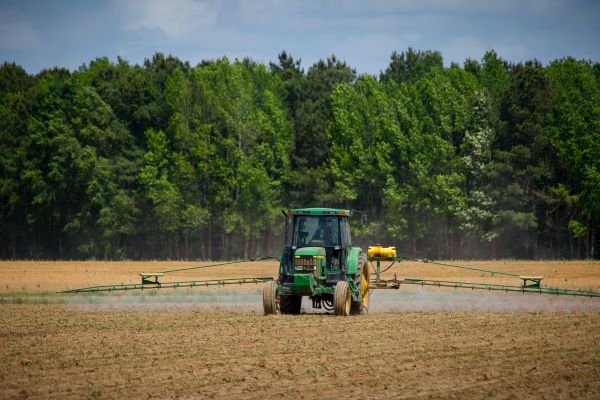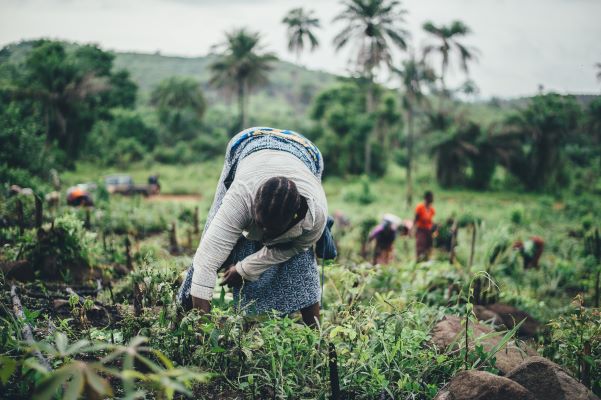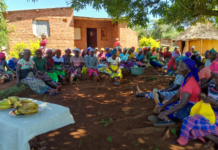By: Lisa Witepski
Wilfred Mogale’s career in farming may have got off to a rough start, but since securing a contract to supply two key retailers with vegetables his company has become a major employer in the Limpopo village of Ga-Sekgopo, where he lives. His business sells butternut, spinach, green beans, serrano, and habanero chillis, and watermelon, as well as naartjies, oranges and avocados which he outsources.
“As a young black male from a village, it wasn’t easy to get the equipment I needed for farming, never mind market access,” Wilfred recalls, explaining that he overcame these initial stumbling blocks by connecting with more experienced farmers who were willing to share both their knowledge and their resources.
He started his business Mocheudi Farming and Projects by selling other people’s produce, until he was able to lease a farm from his community. Although this represented a major step forward, it also created a new obstacle: while Wilfred had initially focused on crops, the lack of water on his farm meant that it was more suited to cattle farming.
Eventually, he decided he would likely experience more success if he returned to the farm previously owned by his late grandfather (who, incidentally, inspired his passion for farming). His hunch proved correct, but only after attempts to find water in four different locations.
Today, his challenges look a little different: Wilfred reports that the Covid pandemic caused havoc to the business, causing consumer demand to drop. Loadshedding is also problematic because it disrupts irrigation.
He’s found a way to boost business by focusing on local supermarkets, rather than relying on fresh produce markets, where oversupply often affects sales. The issue of loadshedding, meanwhile, has been solved by irrigating at night, and for longer hours.
Wilfred says that, throughout his trials, he was driven by the determination to be his own boss and to create employment in his village. He’s met this goal, creating four permanent and 15 temporary jobs; a figure which increases when more hands are required for planting, de-weeding and harvesting. Wilfred has also contributed to the community by establishing feeding schemes for the village school.
Going forward, he has his sights set on increasing production to a point where he doesn’t have to outsource produce from other farmers. “I’d like to become the leading supplier of vegetables, because that would enable us to create more permanent jobs.”
Another entrepreneur creating a positive impacting is Katlego Semenya of Green Vapour Solutions and she too has travelled a similarly difficult road. She explains that she embarked on her agricultural journey after years of participating in community research projects. “During my visits to various communities, I noticed vast tracts of fields lying fallow. Luckily, I had learned about extracting medicinal oils from plants through one of my research projects, so I had the skills I needed to start my venture and reach my goal of making those fields profitable.”
She started by focusing on specific crops that piqued her interest, eventually quitting her job to pursue farming full time. Today, Green Vapour Solutions is one of just a handful of black-owned commercial farming businesses based in Gauteng. The company specialises in oilseed production for agro- processing companies, focusing on soybean, canola and yellow maize. It also offers consulting services to emerging grain farmers.
Katlego is proud of the growth the company has achieved: it has expanded from 87
hectares to 1 000 hectares, while the workforce has grown from two employees to 25 permanent members and 245 seasonal workers. Green Vapour Solutions has, furthermore, participated in feeding programmes and blanket drives for older people.
She admits it has taken a lot of hard work to reach this point. “The initial years were arduous, as I only had small portions of land to work. On the flip side, this enabled me to study my crops closely without worrying about profits.”
That said, as soon as she looked to expand, she encountered several obstacles. For
example, it was difficult to secure land. “Most of the farming land was acquired from a nearby mine, and I secured finance through a contractual agreement with an agro-processing company in the area. They supplied production outputs, while we supplied crops.”
The traction Green Vapour Solutions was gaining gathered momentum when it was selected to receive support from the SAB Foundation, encouraging Katlego to pitch the project to several companies.
Meanwhile, she was hard at work assembling the right team. While it was, initially, difficult to find people with the right mix of skills, attitudes, and attributes, Katlego says that her “dream team of staff who feel like family” plays a key role in Green Vapour Solutions’ ongoing success.
The company’s key priorities now include enlarging its agricultural territory, enhancing efficiency, elevating the workforce participating in the fields, and producing merchandise from the crops it cultivates.
”Farming is my passion, and I wouldn’t give it up for anything. This year has been a success for us, and I couldn’t be happier. However, what truly brings me joy is our positive impact on the community. It’s fulfilling to know that our harvest season provides seasonal workers with money to support their families. While paying our employees is satisfying, the difference we make in the community is even more important,” Katlego enthuses.










[…] Source link […]
Comments are closed.